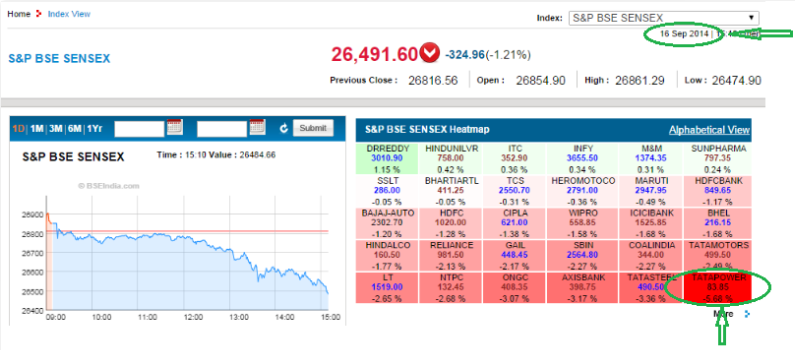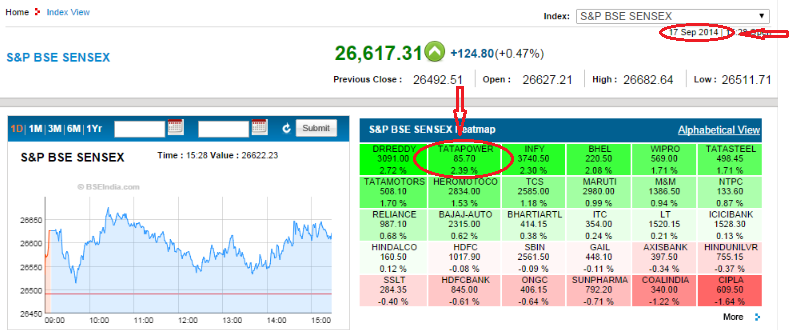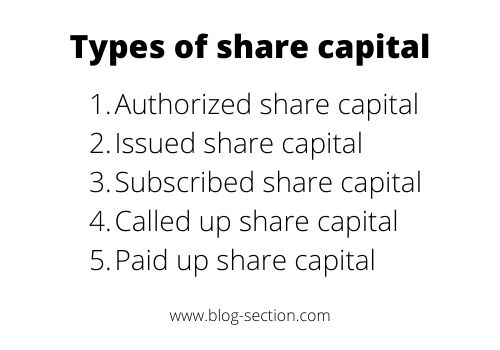Unissued share capital is that part of authorized share capital which has not been issued by a company for subscription. A company keeps a part of authorized share capital unissued so that it can use the same in future to raise funds. The part which has been kept reserved by the company represents unissued share capital.
Blogs
How to make money in share market?
Table of Contents
It won’t surprise you as an investor if I say that when we invest in share market for very short time period; say for one day to few days, we overlook all the essential factors like complete history, growth rate, profitability ratios etc. which one should consider while investing in share market. If this is the case with you also then this article has a lot of things to impress you.
What we look after, is the return on that stock or change in price of that share in recent past (within few days or weeks). So, if we can’t stop ourselves to try our luck then why should not we do it in a systematic way?
How to make money in share market?
In this article I am going to disclose some unique methods which can be used to make money in share market. These are the methods which are not listed in any book or directory. These methods are based on author’s own stock market experience. So be careful to apply them because the author won’t be responsible for any type of loss due to the application of these methods.
Method 1:
Step 1: Select the stock exchange in which you want to invest.
Step 2: choose an index.
Step 3: Check out the stock which is performing very poor.
Step 4: Go through the news for the same stock in various newspapers and make sure that
nothing is going wrong with that particular stock, company or industry.
Step 5: Now wait for the movement when it goes down at its deepest.

Step 6: Invest in the stock to earn profit in coming days.

The degree of return may vary from stock to stock.
Method 2:
This method is profitable only when market is going to operate smoothly in near future and not expected to fall down.
Step 1: Select the stock exchange in which you want to invest.
Step 2: Choose an index.
Based upon your capacity to invest, you can choose more than 1 index.
Step 3: Check out for 2- 3 highest losing stocks on that day.
Again no. of stock can be increased based upon your ability to invest and take risk.
Step 4: Go through the newspaper and make sure that there are no specific reasons for the same.
Step 5: Invest in these stocks.
Step 6: Repeat step 3, 4 and 5 for next few days. For this you should have sufficient amount to invest.
Step 7: Sell the stock when you find it at the top of index because of its increased price.
Important tips for this method:
- Don’t invest all of your money first day. If you have chosen an index which consists of 100 companies, you should invest below 1% of your total amount for one company’s stock to take the advantage of better opportunities in future.
- Don’t sell the stock if its price is not increasing and keep patience.
Disclaimer: MonetarySection.com will not be any way responsible for trading losses incurred using any of the techniques/ methods mentioned on this website
Types of share capital with example
Table of Contents
Before reading the different types of share capital, it is advisable to know the meaning of share capital.
Meaning of share capital:
Share capital is the sum of money received by a company by selling its shares to the investors. When a company issues fresh share to the investors and raises fund, it directly increases the value of share capital.
The amount of total share capital cannot be more than the amount of authorized share capital of a company. Increase in market price of shares does not affect the value of share capital because share capital is calculated based on the par value of shares and not on the basis of market price.
Share capital is shown on the balance sheet of a company.
Types of share capital:

Share capital can be categorized as authorized share capital, issued share capital, subscribed share capital, called up share capital and paid up share capital.
Authorized:
Authorized share capital refers to the total capital that a company is authorized to accept from investors by issuing shares. In simple terms, a company cannot raise capital more than its authorized capital.
It represents the capital with which a company is registered that’s why it is also known as ‘registered capital’.
Issued:
It represents that part of total authorized share capital which has been issued by a company for subscription by investors. Usually, companies do not issue all of their shares for control purpose. Thus, the part which is issued represents the issued share capital.
Subscribed:
It refers to that part of issued share capital, which has been subscribed by investors. It means when a company issues shares to raise capital, it may or may not receive subscriptions for all of its shares. The part of issued share capital for which subscription has been received is known as subscribed share capital. So subscribed share capital can be equal to subscribed share capital but not more than that.
Called up:
In general practice, a company collects the full amount of share price in more than one lot. The part of subscribed share capital which has been asked for payment represents called up share capital.
Paid up:
One of the types of share capital, paid up capital represents that part of called up share capital which has been paid by investors.
Paid up capital = Called up capital – Call in arrears.
Example of different types of share capital:
Suppose ABC Ltd. is registered with a capital of Rs 1,00,00,000 divided into shares of Rs 10 each. The company issued 8,00,000 shares to raise a fund of Rs 80,00,000 but investors subscribed for 6,00,000 shares. The company asked for Rs 4 per share out of Rs 10 (Nominal value of shares) and it received payment for only 5,50,000 shares.
Now,
Authorized share capital (10,00,000 shares of 10 each) = 1,00,00,000
Issued share capital (8,00,000 shares of 10 each) = 80,00,000
Subscribed share capital (6,00,000 shares of 10 each) = 60,00,000
Called up share capital (6,00,000 × 4) = 24,00,000
Paid up share capital (5,50,000 × 4) = 22,00,000
Call in arrears (50,000 × 4) = 2,00,000
Dos and don’ts of investing in share market
Table of Contents
There are some dos and don’ts of investing in share market which should be considered before investing in share market. Below is the list of these basic things, which can help an individual to invest wisely:

Dos:
1) Allocate your investment in various industries.
2) Keep patience in case of stock, you have fully analysed but not moving accordingly or moving with a slow pace.
3) If you have enough patience to hold the shares, and have a very little amount to invest then go for medium and small cap company’s stocks.
4) Always go through the news about company’s recent movement before investing in shares of that company.
Don’ts:
1) Don’t invest all of your money in one company’s or industry’s stock even after you are 100% sure that the particular industry or company is going to generate greater returns.
2) Don’t go for short term and try to keep your investment for a longer period of time.
3) Don’t expect quick returns from your investment.
4) Don’t put all your hard earned money at once. Keep some reserve for future opportunity.
5) Never purchase a stock in hurry, because of its increasing market price and if you want, then don’t purchase a large quantity of it.
6) Don’t be so rigid in selling a share at a price which is lower than your purchasing price because it may further go down and can make the situation worst.
7) Never purchase shares of amount exceeding your total amount* for quick returns because if share prices don’t move according to your expectations, you will have to sell your stock otherwise have to pay interest for that exceeding amount.
- Some brokerage firms give you the option to invest more than your current amount and charge an interest rate on that exceeding amount which is quite higher than the market rate.
